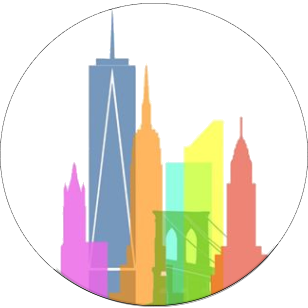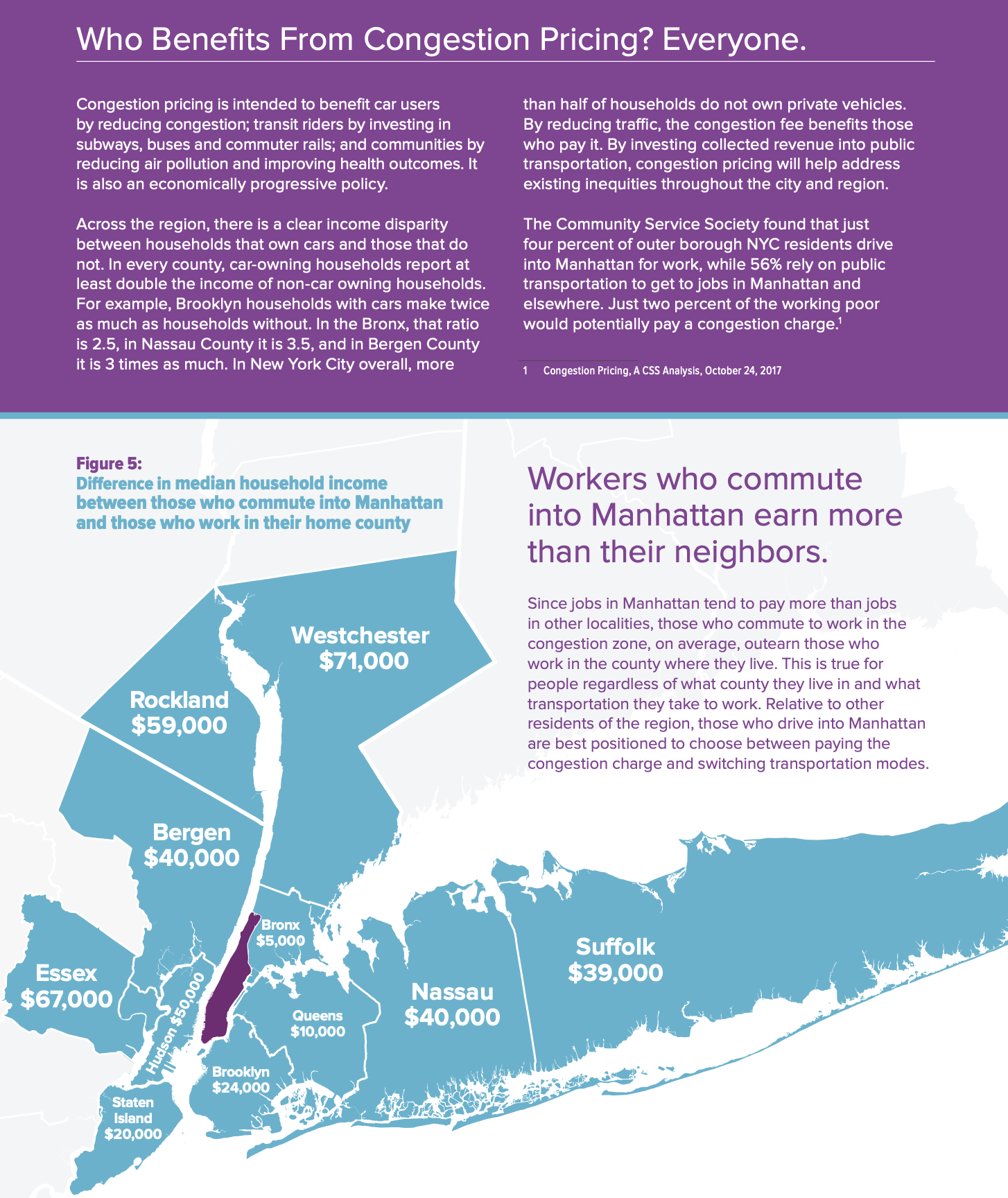RPA ON CONGESTION PRICING
Regional Plan Association
The RPA has released a report on congestion pricing with recommendations for implementation. In April the state budget included a fee for vehicles entering Manhattan south of 61st Street with the intent of reducing congestion in Manhattan's Central Business district and to raise funds for public transit improvements. East River bridges, the FDR Drive and West Side Highway would be exempt from the toll.
Their analysis finds that not only will congestion pricing relieve congestion, but that net revenue (for public transit) will reach $1 billion annually, with time savings worth the equivalent of $1.5 billion a year, not to mention environmental and health impacts. For pricing, the RPA recommends that the congestion fee vary based on the time of day and size of the vehicle. The report's findings show a direct relationship between higher fees in peak traffic times and increased traffic speed. One of the most interesting and sensible recommendations is for two-way tolling, detailed below.
Below are the RPA's five recommendations:
1. Implement transit and bicycle improvements prior to starting congestion pricing.
2. Adopt specific objectives and metrics to meet traffic, environmental, and health goals and ensure that benefits are equitably shared.
3. Design the system to incorporate new technologies that can transition to more dynamic and effective pricing... The goal should be to replace the lump-sum charges with a more nuanced approach that charges vehicles in proportion to time or distance spent in the most congested locations.
4. Install congestion pricing devices to allow for a simple method of identifying vehicles bypassing the zone. (FDR and West Side Highway)
5. Introduce two-way tolling in the congestion zone. To eliminate toll shopping and better manage congestion, the cost of entering or leaving the congestion zone should be consistent
Click here to read the full report CONGESTION PRICING IN NYC: Getting it right



